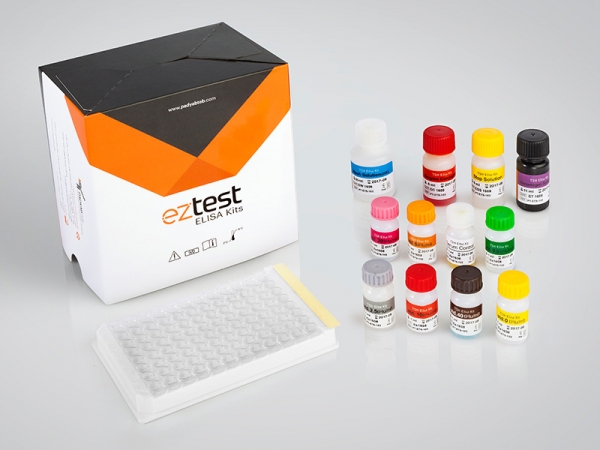| Name | Beta HCG (Rapid) ELISA Test |
| Full name | Human Beta HCG (Rapid) ELISA Test Kit |
| Category Name | Fertility ELISA kits |
| Test | 96 |
| Method | ELISA method: Enzyme Linked Immunosorbent Assay |
| Principle | ELISA principle - Peroxidase Conjugated Sandwich ELISA |
| Detection Range | 0 - 1000 IU/L |
| Sample | 20 µL Serum |
| Sensitivity | 2.0 IU/L |
| Total Time | ~15 min |
| Shelf Life | 12 Months from the manufacturing date |
Beta HCG (rapid) ELISA kit description:
The Diagnostic Automation β-hCG EIA test kit is mainly intended to quantitatively determine Total beta-hCG concentration in human serum.
Materials provided with Beta HCG ELISA Test Kit:
1. Anti-hCG Antibody-coated ELISA Microplate (96 wells)
2. enzyme conjugate reagent: 2 Vials contains anti-hCG-HRP with preservative buffer, ready to use.(2 Vials, 12 ml)
3. standard set, contains 0, 20, 100, 250, 500, & 1000 IU/L(standard WHO 3rd IS 537/75) ready for use.(6 vials, 0.5 ml & zero STD, 5 ml)
4. TMB Substrate: Hydrogen peroxide and tetra-methyl benzidine in preservative buffer, ready to use. (1 vial of 11ml)
5. Stop Solution: a normal hydrochloric acid (1 vial, 6 ml).
6. Concentrated washing buffer: PBS-Tween (1 vial 30ml) (20X)
7. Control serum: hCG in serum with preservatives(1Vial, 0.5 ml)
Materials Required,but not Provided:
1. Precision pipettes(20,50,100,200 µl)
2. Distilled or deionized water
3. EIA kit Microplate Washer
4. EIA kit Microplate Reader with a 450 nm, If possible, 630 nm as reference.
5. Absorbent paper
Introduction
Human chorionic gonadotropin (hCG) with a molecular mass of 38,000 Da is a hormone synthesized by the placental trophoblast cells during pregnancy. It is heterodimeric, with an α (alpha) and β (beta) subunit. α subunit is identical to that of luteinizing hormone (LH), follicle-stimulating hormone (FSH) and human HCG, and β subunit is responsible to specific hormone effects of hCG molecule. Due to constructional similarities, physiological and immunological characteristics, hCG is almost identical to LH hormone. hCG has leutropic effect and supports the formation of corpus luteum; also, hCG determines the hormonal function of testes and adrenal glands of fetus. Serum hCG appears in the early stages of pregnancy, so that its concentration increases and reaches to its peak in the first trimester and then progressively decreases until the child birth. Therefore, measurement of hCG is important for monitoring of pregnancy particularly in the first trimester. In addition to early detection of pregnancy, hCG measurement is important in diagnosis of abnormal pregnancy. hCG has a slow rise and remain at lower levels in an ectopic compared to normal pregnancy. High concentrations of hCG generally can be observed in multiple pregnancy and in patients with trophoblast and non-trophoblast tumors such as testicular, breast, bronchial carcinoma and embryonic cells.
Principle of the assay
This assay is based on specific monoclonal antibody by the use of sandwich method. Anti-hCG monoclonal antibody is used to conjugation with HRP enzyme for coating between the solid phase and an Anti-hCG antibody. By addition of the sample serum, the hCG molecule reacts with mentioned antibodies and sandwiches between bounded antibody on the solid phase and conjugated antibody. After an incubation period (45 minutes at room temperature), the sample is then decanted and the wells are washed to remove unbound-labeled antibody. An enzyme substrate-chromogen is added to the well and incubated for 15 minutes at room temperature, resulting in the development of a blue color. The addition of stop solution will stop the reaction and converts the color to yellow. The intensity is measured at 450 nm. The intensity of the yellow color is directly proportional to the concentration of hCG in the sample.



